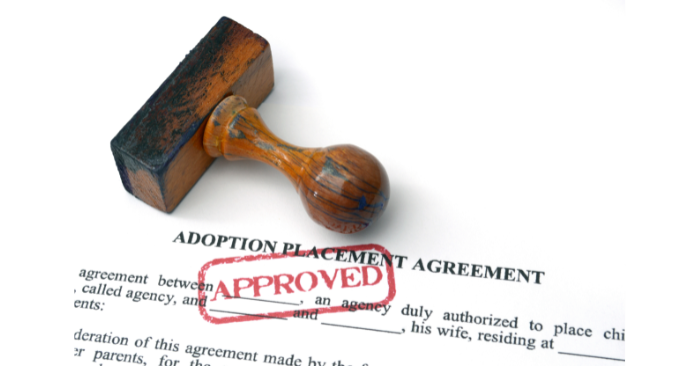In a case of first impression in New Jersey, the N.J. Supreme Court unanimously determined that indigent parents who face termination of parental rights in a contested private adoption proceeding are entitled to counsel under the due process guarantee of the New Jersey Constitution.
 In so holding, the Court reaffirmed earlier decisions that the termination of one’s parental rights plainly “implicates a fundamental liberty interest” by completely and permanently severing the tie between parent and child.
In so holding, the Court reaffirmed earlier decisions that the termination of one’s parental rights plainly “implicates a fundamental liberty interest” by completely and permanently severing the tie between parent and child.
The case involves biological mother, L.A., and her two year old special needs daughter. Mother had placed the child with a state licensed private adoption agency due to her indigent status and because she believed she could no longer care for her daughter. There was no evidence of abuse, neglect or substance abuse by Mother.
Following counseling, Mother decided she no longer wished to terminate her parental rights and began a service plan designed to reunite her with her child. Nevertheless, the private adoption agency began to make an adoption plan for the child and the potential adoptive parents instituted adoption proceedings over Mother’s written objections. When the matter reached the courtroom, the trial court did not inform Mother that she was entitled to appointed counsel. On one occasion, prior to the trial, the trial court asked Mother if she intended to obtain a lawyer. When she responded that she was “working on it,” the trial court informed her that she should act quickly, but again, did not advise her of her right to appointed counsel. Following a two day trial in which Mother represented herself, the trial court terminated Mother’s parental rights.
Mother appealed the decision and was given a state-appointed attorney in appellate court. The appellate court reversed the trial court’s decision on the grounds that Mother was entitled to an attorney during the initial proceedings but was never told this. The New Jersey Supreme Court affirmed the appellate court’s ruling.
Although the adoption agency in this matter was a private one, the NJ Supreme Court determined that the state’s involvement was “real” because the termination of parental rights under the NJ Adoption Act is a part of the state’s “overall and coordinated system of child protection and supervision.” Because the state is involved, constitutional due process rights, specifically the fundamental right to raise a child, are implicated.
The NJ Supreme Court recognized that without the assistance of counsel to prepare for and participate in the hearing, the risk of an erroneous outcome is high.
Accordingly, the parties are best served when both sides present arguments with the help of able attorneys as the outcome not only protects the parent’s rights and the child’s welfare, but also helps bring finality to an adoption proceeding. With respect to when the need for the appointment of counsel arises, the NJ Supreme Court stated that the critical event in the timeline occurs when the parent formally objects to the adoption agency’s decision to proceed towards adoption.
The NJ Supreme Court also emphasized the need for appointment of attorneys to handle these matters, but noted that the current NJ agencies in place lacked sufficient funding for such appointments and called on the Legislature to address this issue. In the interim, the Court said it would turn to private counsel for assistance.
In Pennsylvania, 23 Pa.C.S.A. §2313 provides for appointment of counsel for an indigent parent whose rights are subject to termination in an involuntary termination proceeding. Pennsylvania, however, has not yet made the same determination as New Jersey regarding whether the right to counsel attaches in a private adoption matter.

